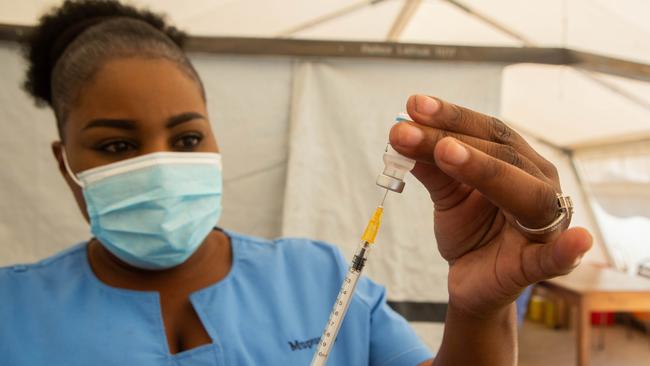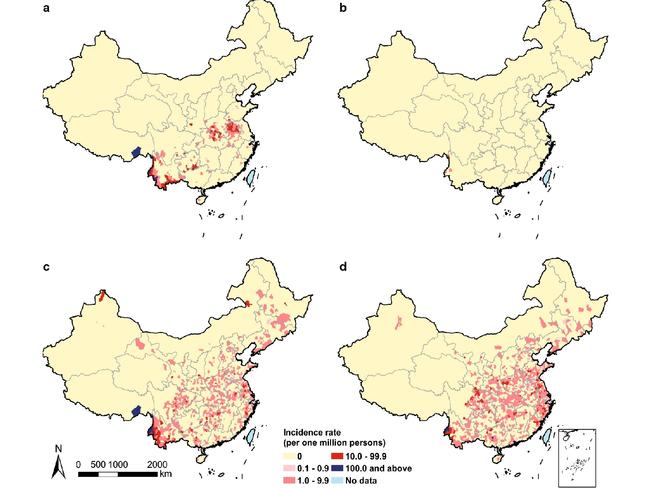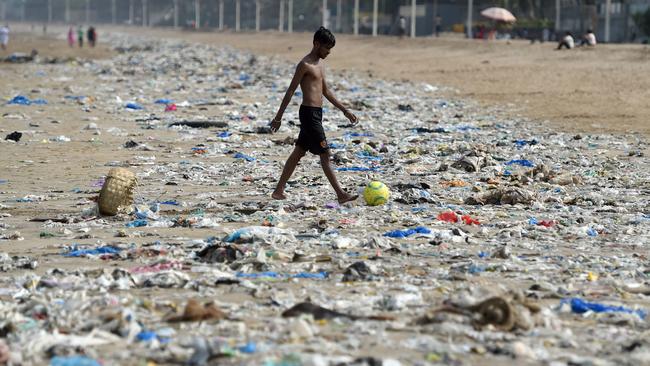Five compelling reasons for hope in 2022
While the world was distracted by Covid, China did something truly extraordinary. And it’s not the only thing the world missed.
Illness
Don't miss out on the headlines from Illness. Followed categories will be added to My News.
COMMENT
China eradicates malaria; humanity switches to renewable energy faster than ever; a world-first vaccine is developed to fight a disease that kills a child every minute; our own Covid hardships prompt us to care more about other people.
These headlines might sound too good to be true, but they are actual news stories from the past year that you probably missed in the 24-hour Covid-19 news cycle.
Hidden in the avalanche of daily case updates and new variant warnings were outstanding discoveries and breakthroughs – real reasons to step into the future with confidence.
The issues we face around the world – inequality, poverty, climate change – can seem intractable and even inevitable. But here are five reasons for hope:
1. The vaccine rollout was the fastest in global history
Never before have so many people been vaccinated in one year against a single disease than were vaccinated against Covid-19 in 2021.

The innovative technology underpinning many of these vaccines, mRNA, has the potential to unlock a whole new era of disease prevention (what some call the ‘RNAissance’).
COVAX – the Covid-19 vaccine sharing initiative – delivered more than one billion Covid-19 vaccine doses around the world and 90 per cent of these were fully-funded doses to poor countries.
2. We now have enough vaccines to cover all health workers and older people globally
What an achievement! Recent modelling found that providing mRNA doses for every person in lower-middle and low-income countries would save 1.2 million lives this year. But inequity in access remains a challenge: 61.8 per cent of the global population has received at least one dose of a Covid-19 vaccine, compared to only 10.6 per cent of people in low-income countries.
COVAX needs a further US$5.2 billion to close the vaccine equity gap. So, while the global speed of vaccination progress is reason for hope, persistent inequity is a call to action.
3. There were five astonishing health wins in the last year alone
In 2021, the Philippines ended its polio outbreak, Niger became the first African country to eradicate river blindness, and China was officially declared malaria-free after a mammoth 70-year effort to eradicate the disease.

Last year the WHO also approved the world’s first malaria vaccine, a disease that kills a child under five every minute.
Assistive technology for people with a disability also took a giant leap forward in 2021, with advances in brain-computer interfaces making it possible for a paralysed man to write just by thinking.
4. Action on climate change
Renewable energy is growing faster than ever, with another year of record growth in 2021. In fact, renewables are set to account for almost 95 per cent of the increase in global power capacity over the next four years.
India’s government is banning all single-use plastics from July this year – a huge reform for the world’s second most populous country.

During Covid-19 lockdowns, the Himalayas were visible from India for the first time in years due to cleaner air. There are also reports of a resurgence in wildlife, better water quality, and improved fish stocks since Covid-19.
Commitments to net-zero emissions reached an all-time high last year. Australia even joined the movement. Major companies made similar commitments, with Coca-Cola, General Motors and Boral all committing in 2021 to achieving net-zero emissions.
5. Increased empathy and compassion – the pandemic’s ‘silver lining’
The pandemic has united us in shared experience and reminded us of our shared humanity. For example, pandemic hardship helped make domestic students more compassionate for their overseas peers. The 2021 Lowy Institute Poll found that the vast majority of Australians (83 per cent) support helping Pacific island countries pay for Covid-19 vaccines and 60 per cent supported doing the same for Southeast Asian nations.
And Australians have given generously, with World Vision finding that people in Melbourne and Sydney were up to 50 per cent more likely to sponsor a child – during the harshest of lockdowns.
These are history defying achievements in any year, and what makes them even more remarkable is that took place during unprecedented disruption.
I’m not being naive. The world faces serious challenges. With so much uncertainty, it’s good to know that progress is being made and every day, lives are being changed for the better.
Dane Moore’s is World Vision’s senior policy advisor.
Originally published as Five compelling reasons for hope in 2022




